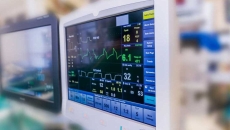Artificial Intelligence
The department, billed as the first of its kind, aims to establish an artificial intelligence framework that's integrated across all the health system's hospitals and clinics.
HIMSS21
Juli.co CEO Bettina Hein discusses how the juli app uses AI to help providers and patients manage complex conditions such as asthma, depression, bipolar disorder, migraine and chronic pain using formerly siloed data.
The vendors discovered that distributed ledger technology was much faster and more efficient, while maintaining necessary privacy and security.
The system, which offers “radiologist-level accuracy”, has been designed as a decision support tool for clinicians.
HIMSS21 APAC
As group chief technology officer and deputy chief medical information officer at National University Health System Singapore (NUHS), Dr Kee Yuan Ngiam’s career has been defined by his work developing and deploying AI platforms.
While the 'robot' aspect of RPA gets most of the attention, successful implementation centers on the people and processes that will be impacted by the technology – and in a healthcare system where burnout is rampant, there are plenty of those.
The health system-led data platform will broaden the reach of its pop health analytics projects with Azure-based artificial intelligence and security tools.
This tool provides a risk score that factors in patients' vital signs and lifestyle attributes.
HIMSS21
Virtual assistants are the future for both patients and providers, explains Dr. Yaa Kumah-Crystal, assistant professor of biomedical informatics at Vanderbilt University Medical Center.
"In minutes, the software identified nearly 54,000 patients with the condition, a process that would likely have taken years for physicians to perform manually," a physician researcher tells Healthcare IT News.









